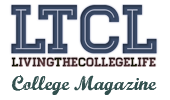Gary Vaynerchuk Exclusive Interview: Thoughts on Higher Education (Part 1)

onsidered one of the most forward thinkers in the ever-changing digital industry, Gary Vaynerchuk isn’t just a New York Times bestselling author. He’s a wine expert, too. LTCL Magazine landed an exclusive interview with Gary to get his thoughts on higher education and learn more about how he lived his college life. We also used this opportunity to ask for any advice that will prepare us for our professional careers.
Gary Vaynerchuk’s rise to fame is a result of his ridiculous work ethic, vision, and execution. He has an uncanny ability to notice game-changing shifts in business practices and has been very successful at capitalizing on these opportunities (winelibrary.com), as well as advising Fortune 500 companies (Vayner Media) on how to adapt their marketing plans to the new mobile and social world. On a personal note, listening to Gary explain how he sees the world has had a tremendously positive impact on my life. Many of his teachings I practice for this publication, so you can imagine how special it was to get to meet him. But enough sappiness. Let’s get to the interview:
Exclusive interview LTCL Magazine with Gary Vaynerchuk:
For my first question Gary, could you tell me more about your college days and how you “lived the college life”:
Yeah, I lived a very unique college experience. First of all, I wasn’t a great student. I went to a very small school up in UMASS called Almeda College and I was going home every weekend to work on the liquor store, and during the weekdays I was building liquor stores around Boston to look at different ideas and get some different thoughts on how I wanted to setup my stores.
I quickly learned about the internet in ’94, my freshman year, and started thinking what could I do, and could I conceivably launch a dot com for the liquor store. But, you know, Mon-Thurs I would say I went home 60 percent of the weekends– to be exact from Boston down to New Jersey. And I took my studies very, very NOT seriously. I took all my other time of playing Madden football, Sega Genesis, and trying to make me a better businessman very seriously. But it was kind of a pre-vacation on some level because I started hustling really hard right after four years, but it was definitely honing my craft; reading The Wine Spectator, going through the wine shafts, and learning about the internet more so than class or anything of that nature. I obviously missed out on weekends a lot. So I kind of missed a lot of that aspect of college.
So with today only 50% of students find jobs after graduation and new jobs are being created that don’t exist in curriculum and rising prices on top of that; what is your opinion on higher education, and is it doing a disservice to hopeful grads?
I think higher education is a racket, on its best day. I think that there is a born set of people, of a certain DNA, which I think is close to half the people out there—there is clearly some professions, that if you have ambition for them, you need to go through the process. But I don’t think it’s ever been less valuable and more cost heavy, and I think that is a really bad supply and demand ratio. And it’s caught me completely off guard on how little value it actually brings to the table in return for what the costs are. When you start to think about how student loans are the only thing you can’t clear from bankruptcy– it just seems really archaic. I couldn’t get into 90—excuse me, I couldn’t get into 99.9 percent of the schools that ask me to come and talk, and when I see what the curriculum is of the business schools, and things they teach it feels like a lot of the corporations that are marketing like its 1998. I think they’re teaching like it’s 1998 for the 2013 world.
You and I are business people, and many times when we see a problem, there is an opportunity to fix it. What kind of opportunities do you think this higher education problem is opening up and where is it headed?
I think companies like Khan Academy and Code Academy and all those organizations clearly show you that there are platforms of education that is going to be taught and we are going to see a lot more happening online. A much bigger democracy of opportunity and different niche skill sets being taught. A lot more opportunity—I think there will be a huge disruption from the classic themes where you will see value in a lot of new curriculum NOT through classrooms but through mobile and digital.
I also noticed you tweeting yesterday about wanting to hire journalism students and interns. I was wondering if you could tell us more about why you are interested in this type of student specifically.
I’ve got something brewing that I need writers for, that their background being in journalism is going to help. I think that copy and writing and being able to communicate through the written word never goes out of vogue, it’s just not going to be done in a traditional sense. A journalist from the 1970’s wrote different than a journalist from the 1920’s. Things evolve. I think the modern day journalist 3.0 that is something I have intuition about—I have a couple ideas about it, but I’m not ready to disclose it. I think I’m going to keep it under wraps for now. But it’s for a business reason… I think they are being taught something that is a little obsolete, but also think there is something I could teach them that is going to bring them value.
I can attest to this. I find some of my best writers for LTCL have had the initiative to start writing on their own online and bring a lot of their own learning to the table…
And that makes sense; I’m looking for something similar. I’m looking for something of a little bit different class and a little bit more light, but yeah, it’s partially the same thing. And I believe in context so I have to go through the process. I generally don’t go towards students and things of that nature so, I have my normal way of going about it but I also want to counter it to see what these 18-22 year olds look like these days, so–just context.


